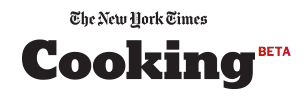 With NYT Now launched at $2 a week, NYT Opinion at $1.50, and Times Premier at $2.50 over whatever else you’re paying, the final expected new Times paid product is its Cooking app, which has debuted in beta, but without a public pricing model. It’s a lovely recipe site, but there are lots of recipe sites, at least some of them lovely, and it’s been unclear (to me, at least) what a premium strategy might look like.
With NYT Now launched at $2 a week, NYT Opinion at $1.50, and Times Premier at $2.50 over whatever else you’re paying, the final expected new Times paid product is its Cooking app, which has debuted in beta, but without a public pricing model. It’s a lovely recipe site, but there are lots of recipe sites, at least some of them lovely, and it’s been unclear (to me, at least) what a premium strategy might look like.
NYT Cooking beta is beautiful and useful, and I'm a @bittman fanboy. But can't see how they make this a paid product. http://t.co/R0pne4OQVt
— Peter Kafka (@pkafka) May 14, 2014
Digiday’s Lucia Moses has some clues:
A survey sent to subscribers hints at how that might change once the full site launches. Access to the recipe archive and features like the recipe box would continue to be free, according to the survey.
Subscribers, meanwhile, would get “premium healthy cooking” features: nutritional information for all recipes, healthy meal plans picked by Times editors, interactive grocery lists, and the ability to sort recipes saved to the recipe box based on healthy ingredients.
That’s a pretty clear upsell — and that’s before you get to the Mark-Bittman-will-be-my-friend-for-a-few-dollars-a-month angle.
Leave a comment